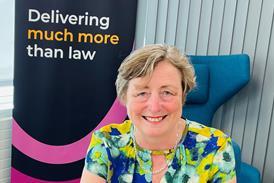Many litigants in person underestimate the value of having a lawyer, with media stories of ‘fat cat’ lawyers encouraging more people to take matters into their own hands, research from charity Citizens Advice has revealed.
The report on unrepresented litigants in family courts also highlighted the negative experiences faced by those who pursue cases without legal representation.
According to the report, the stress, responsibility and loneliness of going to court without representation can mean ‘litigants in person achieve worse outcomes compared with their represented counterparts’.
It also showed 90% of people who had been LiPS found the experience negatively affected their health, relationships, work or finances. Some lost their jobs due to the pressure, while others got into debt due to court issues, including paying for photocopying and travelling to and from court.
Meanwhile, seven in 10 reported they might ‘think twice’ about taking a case to court themselves if they could not afford a lawyer.
The charity said the rise in litigants in person was mainly due to clients being unable to afford a lawyer due to reduced funding for those going to the family court following the implementation of the Legal Aid, Sentencing and Punishment of Offenders Act (LASPO) in 2013.
But it also noted that some people chose to be unrepresented as they either mistrusted lawyers or were not aware of the value lawyers could bring to their case. The charity said unclear information about the services lawyers provide ‘makes it difficult for people to judge the quality of a professional or compare services’.
The report said consumers are not being guided to the increasingly widespread unbundling services lawyers now offer.
It said that without clear information, unrealistic expectations cause people to feel frustrated with the service they receive. This, combined with a lack of awareness of consumer protections, means one poor experience can ‘put someone off the whole sector’.
The charity said it was only after people had been through the process of going to the family court that they realised the value of having a lawyer, with 70% saying that instructing a professional would have benefited their court experience.
Gillian Guy (pictured), chief executive of Citizens Advice, said: ‘For people representing themselves in the family courts, whether in a divorce case or to keep the legal right to see their children, the workload to prepare can be unmanageable. In extreme cases people are quitting their job so they have the time to do research before going to court.
‘The stress of making your case against qualified barristers and navigating complex court processes without the right guidance can make existing mental and physical health problems worse.’
‘If people representing themselves in court knew where they could get reliable information online or face-to-face this could help cut down the time they need to prepare.’



























25 Readers' comments